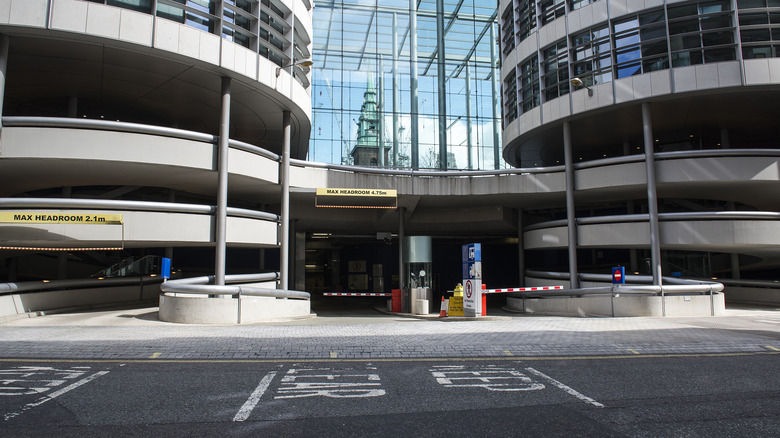Parking in an unfamiliar place can be tricky, especially when traveling in Europe. Local street parking rules can be confusing, finding a space can take time, and even when you find a spot, you may risk hitting another car just trying to squeeze your vehicle in. It can make you wonder: How do the locals live like this?
According to travel expert Rick Steves, some locals — and savvy tourists — have a genius way around the hassle. Instead of relying on the musical chairs-like experience that is street parking in busy neighborhoods, they avoid parking in the city center altogether. In a blog post on his website, Steves suggests looking for park-and-ride lots located far from the most bustling areas but still situated conveniently beside a major city bus stop or rail station. These lots are a great way to ease city congestion, which can help you avoid wasting time in traffic while reducing air pollution.
Besides being hassle-free, park-and-ride lots are often free to use, according to the guidebook writer. Instead of springing for expensive hourly parking, you only have to pay for the public transportation needed to reach your destination. Note, however, that these lots are frequently used by commuters heading to work, so you may need to arrive early to nab your spot.
Parking garages are a convenient backup

In his post, Rick Steves mentions large underground garages as a parking solution when traveling in Europe. These and other spacious garages can be a good alternative when you can’t find a park-and-ride lot. They’re sometimes found in city centers, but you might have the most luck — and save more money — by looking outside the congested areas.
If you’re unsure where to start, parking garages are often found near large shopping centers, stadiums, hotels, and modern tourist attractions. While garages may charge a higher fee than local street parking, they tend to be much more affordable than paying a fine after letting your meter expire or accidentally parking in a no-parking zone.
In a separate article about gas and parking on his website, Steves warns that paying for your fare in a European parking garage isn’t always straightforward, especially for tourists. You might need to download an app to make your payment, and if you try to use a foreign credit card, the machine may reject it. To be safe, make sure you always have access to secure Wi-Fi while traveling and keep some cash on hand if all else fails.
When to ditch the rental car altogether

If you come from a country where driving is the only viable transport option, you might be surprised to find that many European destinations don’t require a car — and having one can sometimes be more trouble than it’s worth. From capital cities to small towns, you can often get around using only public transportation. Rick Steves suggests weighing several factors when choosing between a rental car and a train or other mode of transport. For example, if you plan to take a lot of day trips to different cities or even countries, it may make more sense to plan a long-distance rail trip rather than a road trip. If you hope to spend a lot of time in the countryside, you might need a car to visit all the sites on your itinerary. A rental car can also come in handy if you have a lot of luggage to carry.
If a car only makes sense for one leg of your trip or for short distances, such as when arriving at your hotel from the airport, look into the cost of taxis or ride-share apps at your destination. These services can be relatively affordable in some European countries, especially when you factor in the price of parking, tolls (common in countries such as Portugal), and emissions fees (including in London’s Low Emission Zone) associated with having your own vehicle.

